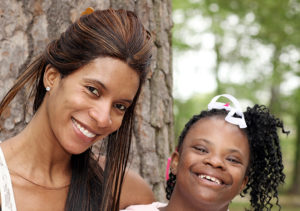3 Things You Should Know About Being a Shared Living Provider

Children, teens, and adults who have intellectual and/or developmental disabilities often require extra support with daily tasks or understanding social skills, and/or behavioral management. While these individuals may have family members that can provide some support, many would like to live outside of the family home. An extended family home (EFH) is a viable option and is an especially important resource to have if an individual has been living in congregate care or has aged out of foster care without proper support.
Provide a home where children, teens and adults with disabilities can learn social and independent living skills. Learn more about becoming an Extended Family Home today!
EFH’s provide a safe place to live as well as any needed supervision and/or support, life skills training and access to the community and community-integrated activities. Providing a living space and supportive environment for individuals as an extended family home is a great way to support people with intellectual and/or developmental disabilities and nurture their independence. Here are three important things for you to know about extended family homes:
1. Each Individual within an EFH has a different goal.
Individuals living in extended family homes need extra support, but depending on their age and needs, their goals within the EFH may be different. Some individuals might require help with meal preparation and cleaning, while others might need assistance with behavioral skills and personal hygiene care. By providing access to community activities and other opportunities, EFH’s help expand an individuals’ interests and enrich their quality of life.
2. EFH’s receive an abundance of support.
A great extended family home works in partnership with the individual as well as their support team. KVC provides ample training to help each EFH care for the individual in their home. This includes medication aide licensing, CPR and first aid training, MANDT training for crisis de-escalation and behavioral management, as well as additional training to help with understanding the requirements/regulations of the state of Nebraska and KVC’s policies in supporting an individual with intellectual/developmental disabilities.
The typical requirements for an EFH are manageable and include providing support with daily living tasks, documentation and tracking of medication administration, goals progress, and transportation to and from doctor visits, school or vocational programs, community activities and family visits.
KVC Nebraska provides exceptional training and resources to extended family homes and the staff is on-call 24/7 to offer support, advice, and crisis intervention.
3. Being an EFH is not always easy, but it’s worth it.
To be a great extended family home doesn’t require perfection. It does, however, require patience and a love of teaching and helping others. The rewards of opening your home and heart to someone with intellectual and/or developmental disabilities are just as great as caring for your own child.
Learn more about how you make a difference in the life of a child, teen or adult who needs some extra support by becoming an extended family home here.
